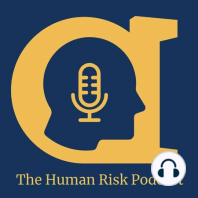30 min listen
Ray Blake on Dark Money
ratings:
Length:
63 minutes
Released:
Jan 28, 2023
Format:
Podcast episode
Description
What can financial crime teach us about human risk? On this episode, I'm joined by Ray Blake, co-host of "The Dark Money Files," a podcast that examines how the banking system is used by organized crime and corrupt individuals to launder their ill-gotten gains.Since 2015, Ray and his co-host, Graham and Barrow, have been shedding light on the techniques used by criminals to perpetrate financial crime and what people working in banking can do to prevent it.In our discussion, we explore how Ray became interested in financial crime prevention, what prompted him and Graham to start the podcast, and the human risk dynamics relevant to fighting financial crime. Ray shares some intriguing insights — such as the fact that if financial crime were a standalone economy, it would be entitled to its own seat at the G7! — and his thoughts on what can be done to help mitigate the risks posed by financial crime.To find out more about Ray and the Dark Money Files, visit https://www.thedarkmoneyfiles.com/You can find Ray on social media as follows:LinkedIn - https://www.linkedin.com/in/rayblakeafc/Twitter - https://twitter.com/rayblakeTo find out more about my new book 'Humanizing Rules: Bringing Behavioral Science to Ethics and Compliance' which is available for pre-order now (release date in March) visit https://www.human-risk.com/humanizing-rules-book
Released:
Jan 28, 2023
Format:
Podcast episode
Titles in the series (100)
Dr Roger Dooley on Friction: Roger Dooley describes himself as a "Friction Hunter". In this episode, I speak to him about his study of Friction; what I think of as "the things that stop us doing what we want or need to do". We explore why Friction exists, what we can do about... by The Human Risk Podcast
